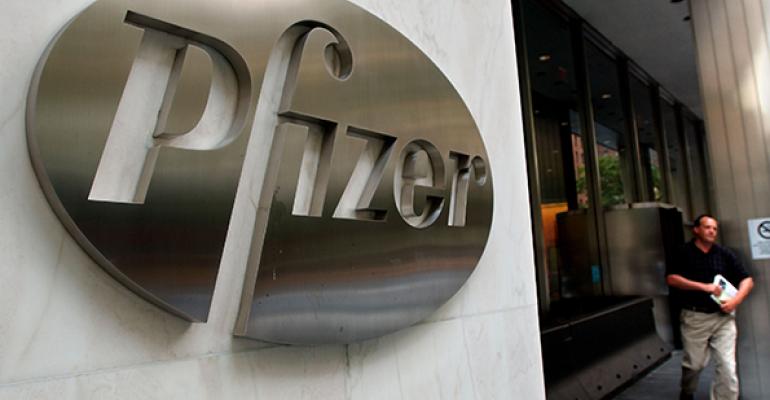U.S. corporate tax inversions have increased greatly over the past 10 years — to the point where the U.S. government recently announced new rules to stem the tide.
In 2015, the U.S. medical device company Medtronic completed its corporate tax inversion with the Irish firm Covidien, thereby escaping the high corporate tax rate in the U.S. A similar deal, also in the health care industry, was just scrapped because of the new rules: U.S.-based Pfizer will no longer combine with Allergan, which is run from New Jersey but based in Ireland for tax purposes. But other large-scale deals are still pending, including the purchase of Johnson Controls, Inc. by the Irish firm Tyco International.
Most of the media discussion about tax inversions focuses on the government’s interest in tax collections and the corporation’s interest in tax minimization. Often, not enough attention is paid to effects on typical shareholders, especially those whose holdings may be a substantial part of their personal wealth, such as long-term employees and executives.
In theory, shareholders might eventually benefit — such as through higher dividends — thanks to a lower corporate tax rate. But in reality for most shareholders, tax inversions are a negative immediate event. Here’s why, and how, shareholders may need to cope with the financial implications to them personally.
What Is a Tax Inversion?
A tax inversion involves a corporate deal between a U.S. corporation and a foreign corporation. For this purpose, the foreign corporation purchases the U.S. corporation. These deals sometimes involve a purchase of the U.S. corporation’s stock and assets. After the deal, the U.S. corporation’s shareholders become shareholders of the foreign corporation. The U.S. corporation then continues its operations as before but with key tax and sometimes other legal benefits.
Corporate Benefits
Why would a U.S. corporation consider being acquired by a foreign corporation? Once acquired by a foreign corporation, the former U.S. corporation becomes subject to the foreign laws and banking regulations of the foreign country. More importantly, this means the former U.S. corporation becomes subject to the tax laws of that foreign corporation.
Why Would This Matter?
Foreign countries often maintain lower tax rates than those paid by U.S. corporations. In addition, foreign countries often maintain a territorial corporate income tax system, whereas the U.S. maintains a worldwide corporate tax system.
What Does That Mean?
The U.S. imposes taxes on any U.S. corporation’s income regardless of where it has been earned worldwide. Foreign countries, by comparison, often only tax a foreign corporation on its income earned in that country alone (without assessing additional tax on income derived outside of the foreign country).
So, a U.S. corporation can complete a tax inversion and obtain two important tax benefits:
- Paying income tax according to the lower tax rates of its new foreign “home”; and
- Not paying any income tax on its worldwide income.
Of course, a former U.S. corporation still would pay tax on its income earned within the United States. However, it then would only pay income tax on its U.S. and foreign “home” operations without paying additional tax on any income earned elsewhere in the world. This can provide a former U.S. corporation with huge tax advantages.
Shareholder Detriment
If a U.S. corporation tax inversion deal involves a stock transaction, then its U.S. shareholders must pay capital gains tax. For this purpose, the U.S. shareholders will be treated as though they sold all of their U.S. corporation stock to acquire the new foreign corporation stock issued to them. This tax result affects all former shareholders of the U.S. corporation, including employees and executives.
Why?
Congress added Internal Revenue Code Section 367 to the tax code during 1998. Essentially, Congress wanted to ensure that all U.S. corporate shareholders would pay an “exit tax” if a U.S. corporation would “leave” the U.S. by “relocating” to a foreign country. This tax code provision requires capital gains recognition upon exchange of stock for tax purposes, which results following a corporate tax inversion deal.
What If a Shareholder Only Receives Stock and No Cash?
The former U.S. corporate shareholders must pay a capital gains tax regardless of whether they receive any cash along with the deal. This puts a burden on shareholders who may have held stock for many years with a low basis. They now must decide how to fund their capital gains tax bill (perhaps by selling some of their new shares to generate proceeds for payment).
In essence, shareholders subject to a tax inversion lose the opportunity to plan the timing of their stock sales. It thereby also prevents them from passing these shares on to their family following death with a higher (step-up) basis currently available under Internal Revenue Code Section 1014. Finally, it requires shareholders to track (or re-create) the basis of stock they may have received over a long working career.
Terry LaBant is VP and Sr. Wealth Strategist at Calamos Wealth Management.





